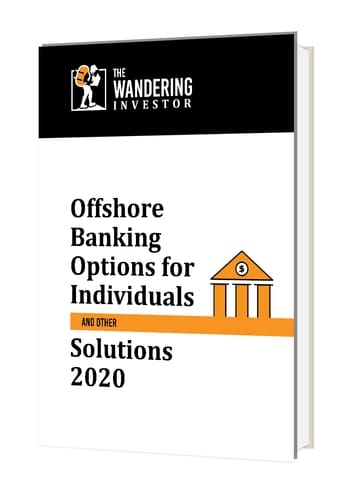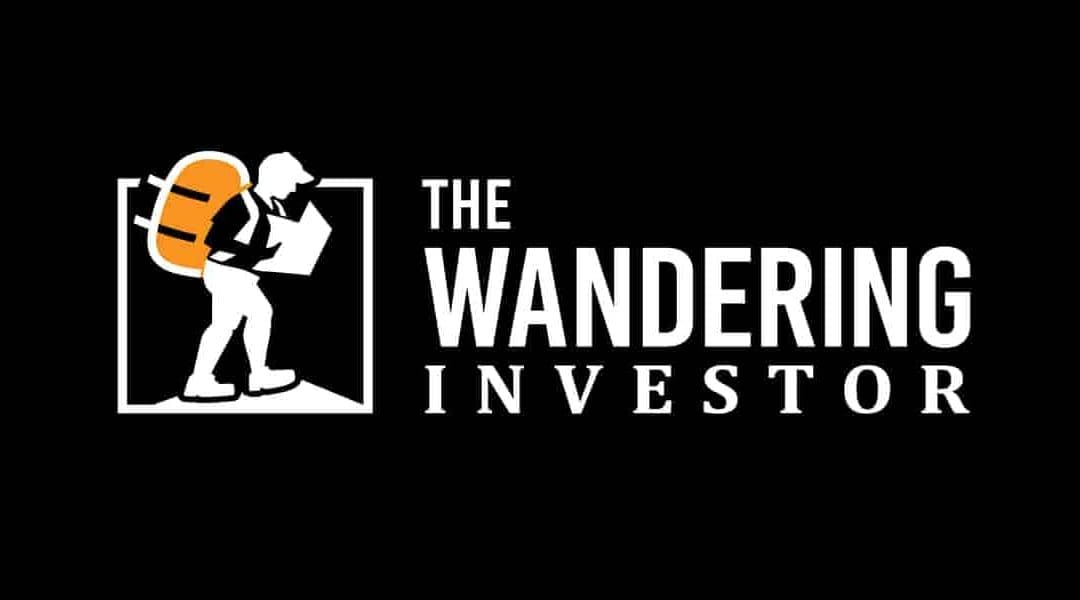While central banks everywhere are printing currency and governments are handing out billions to individuals via stimulus schemes like helicopter money, we are still not witnessing any bank runs. The media and governments everywhere are quick to say that a bank run is not possible.
Never mind that countless people have stopped making payments on their credit cards, auto loans and mortgages.
Never mind that countless businesses have stopped paying back their loans and can barely afford rent.
Never mind that the oil industry has completely collapsed and that banks are sitting on trillions of dollars of loans to the industry.
and finally never mind that most Western banks (especially in Europe) are poorly capitalized.
Don’t mind any of this. Regulators are busy watering down capital requirements for banks, and central banks are extending near unlimited liquidity. For now, it’s working. Will it continue to hold things together? Will it eventually implode? Maybe, but there might simply be a bank bail-out by the governments, leaving tax-payers on the hook, along with partial bail-ins, thus leaving some depositors (probably the larger ones) on the hook.
But don’t worry. The government has your back.
But it doesn’t always work out this way, and Lebanon is a case in point. Of course, since its currency is not a reserve currency, the country is more exposed than large Western economies and cannot solve liquidity problems with money printing.
But that doesn’t make Lebanon any less notable in this context; there has been a bank run ongoing since late 2019.
The people of Lebanon are suffering.
It wasn’t always like this
Until the summer of 2019, Lebanon was the crown jewel of private banking in the Middle East. It attracted wealth from all over the Gulf and Africa thanks to higher interest rates, attentive service in French, English and Arabic, and ease of transacting with high risk jurisdictions throughout Africa and the Middle East. This is in addition to functional online banking and a number of offshore company structures to engage in international trade.
And then came the Crash
It all came crashing down in H2 2019 in a way characteristic of banking crises.
Bank run Step 1. High Net Worth Individuals (HNWI) and Ultra High Net Worth Individuals (UHNWI) take note of the country’s situation. They observe high and growing government debt levels (151% debt to GDP ratio in 2018) coupled with stagnating GDP and political instability.
Bank run Step 2. They conclude that the risk is not worth the 3% USD interest rates, and start transferring money out. It’s easy to do as there are no capital controls. HNWI and UHNWI are often in the same social circles, and use the same wealth managers – the word spreads. More money leaves the country. Even if there were capital controls, they would find ways of getting a lot out.
Bank run Step 3. The substantial capital outflows start appearing in the statistics, thus stoking fear and accelerating the trend. Typically you’ll see a few government and central bank officials declaring publicly that “All is under control and there is no need to worry”.
Bank run Step 4. Normal people start worrying a bit as well, and begin withdrawing some funds. The government repeats that all is under control.
Bank run Step 5. On a Monday morning, the banks don’t open, and ATMS run out of cash. At this point, it’s too late. The government will just say that this is to “calm down the markets”.
Bank run Step 6. A few days or weeks later, banks re-open but with limited withdrawals and capital controls now in place. In Lebanon’s case, people could only take out a few hundred dollars per week, depending on the bank, and could not transfer significant sums out of the country.
These things happen fast. In just a few weeks you can go from having normal banking sector to having your money stuck in a defaulting bank.
By this time you have riots, and protesters who just want their savings back being beaten up by government militias (police). All of this happened in Lebanon in the last two quarters of 2019.
What about Lebanon now?
Lebanon defaulted on its sovereign debt in March 2020. The debt was denominated in hard currency, so printing away Lebanese Pounds was not an option. The debt default made the balance sheets of the local banks even worse as they were sitting on about 50% of Lebanon’s hard currency denominated debt. Withdrawal restrictions were made even stricter to as low as $200 every two weeks.
The Lebanese Pound, which had been at a peg of 1500 to the Dollar for the past 22 years is now at nearly 4000 to the USD on the black market. Whereas before you could withdraw what little amount the government permitted in USD, you may now only withdraw in local currency . So if you’re allowed to withdraw $100, the bank will give you the equivalent of $100 in Lebanese pounds at the official rate, not at the black market rate. This means you instantly lose more than half of your money, with even more devaluation expected.
Hyperinflation of the local currency is likely. And a bail-in of the banks through taking depositors’ money is practically unavoidable.
So how are the people reacting?
Poverty, hunger, and economic collapse naturally lead to riots and government violence against its own people. This is how it always plays out.
CNN will tell you that this is all because of the virus – it isn’t at all. The virus merely made the situation worse. It accelerated the inevitable by a few weeks at most.
https://edition.cnn.com/2020/04/28/middleeast/lebanon-hunger-aid-coronavirus-intl/index.html
Looking past the CNN lies, the reality is that people are going hungry. Normal middle class doctors, engineers and mechanics cannot feed their families anymore. Their bank deposits, pension funds and maybe even rental income are no more.
- The money in the bank is being stolen.
- The pension funds will pay out in a devalued currency.
- Their tenants are probably struggling to pay, and if they still do it is in devalued currency.
So now the people are burning banks.
In the process they get shot at by the government militias and the army.
As is often the case, the police and the army are used to oppress their own people.
Is it possible to avoid getting caught up in a bank run?
Do you have money or assets in a country with wobbly finances and without a reserve currency? Such countries will be the first victims. Developing countries with high debt levels and that are dependent on exports of commodities are particularly at risk.
Even countries that have reserve currencies can become victims. Think of what happened to Cyprus and Greece during the last Euro crisis – could it happen to them again?
And Italy, with its dilapidated economy, graying population, a debt to GDP ratio that is now probably above 150%, and populist politics? For now the European Central Bank has its back, but will it always?
Getting prepared, such as moving money to safer banks and jurisdictions, is a cheap way to reduce risk. It’s possible to do so from home as well, by filling out some paperwork.
I initially started this blog for fun, and it quickly turned into a part time consultancy. The month of April has been a record month. I’ve had sessions with a number of people based in Europe and Africa, who are looking for diversification.
Don’t panic, but be prepared.
This eBook I wrote could be helpful – it lists many offshore banks that accept non-residents, and elaborates on how some people use cryptocurrency to get past capital controls.

Subscribe to the PRIVATE LIST below to not miss out on future investment posts, and follow me on Instagram, X, LinkedIn, Telegram, Youtube, Facebook, and Rumble.
My favourite brokerage to invest in international stocks is IB. To find out more about this low-fee option with access to plenty of markets, click here.
If you want to discuss your internationalization and diversification plans, book a consulting session or send me an email.



Great post. Subscribed.😊